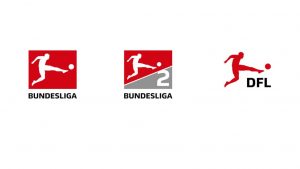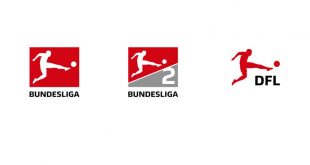 To assist a safe return of fans to stadiums, the DFL Deutsche Fußball Liga and Deutscher Fußball-Bund (DFB) will support several studies through their joint Sports Medicine/Special Match Operations Task Force, led and coordinated by Prof. Dr Tim Meyer, as well as through substantial financial resources. The goal is to obtain valid findings that can be helpful in the planning and organisation of future events. As with all the concepts that have been implemented since the outbreak of the coronavirus pandemic, it goes without saying for the DFL and DFB that the results of the academic studies will be shared as quickly as possible with all interested organisations and institutions – within football, within the whole of the sports world and also beyond, for example in the field of culture and events.
To assist a safe return of fans to stadiums, the DFL Deutsche Fußball Liga and Deutscher Fußball-Bund (DFB) will support several studies through their joint Sports Medicine/Special Match Operations Task Force, led and coordinated by Prof. Dr Tim Meyer, as well as through substantial financial resources. The goal is to obtain valid findings that can be helpful in the planning and organisation of future events. As with all the concepts that have been implemented since the outbreak of the coronavirus pandemic, it goes without saying for the DFL and DFB that the results of the academic studies will be shared as quickly as possible with all interested organisations and institutions – within football, within the whole of the sports world and also beyond, for example in the field of culture and events.
A large study supported by the DFL and DFB over a period of eight to ten weeks will be conducted to assess the specific risk of getting infected for defined spectator scenarios. The goal here is to use a scientific study to evaluate what outcomes in terms of the epidemiology of coronavirus disease will result from a specific spectator access concept developed for an event venue. The study will be conducted by researchers from the Medical Faculty at Heidelberg University in Mannheim, as well as the Ruhr-Universität Bochum. A process divided into several stages is planned here, which will involve preliminary technical testing during match operations at two stadiums each holding 500 people. Once this has been carried out successfully, the study will be extended to several stadiums with a significantly larger number of spectators. In this process, stadium visitors will be tested for the coronavirus before a game and then monitored over a defined period before being tested again; this will enable possible chains of infection to be tracked in relation to the places where people spend time.
An accompanying study will look at spectator movements inside and outside the stadium. The aim here is to obtain data on how to optimise routes for arriving at and leaving the stadium as well as the situation when entering the stadium. The requirements for time and space, as well as the maximum number of people allowed to gather, can be derived from the results for all areas inside and outside the stadium that are used on a match day as well as for local public transport. The solution strategies that have been identified by Manchester Metropolitan University on behalf of the DFB for capacity, space requirements and the time needed to fill up the seats in the stadiums provide the basis for further investigation. A software tool developed by Manchester Metropolitan University helps to evaluate stadiums based on the distancing rules that are necessary at the moment and has already provided support for clubs as they have drawn up their stadium-specific concepts for getting spectators back into grounds. Knowledge of the particular circumstances of a stadium and access to it can be input directly into the tool. This allows the strengths and weaknesses of each location to be analysed under constantly changing conditions. The results will be taken into consideration in the specific design of the study on the risk of infection. Local concepts can be optimised with the help of the tool in conjunction with the results of the study on the risk of infection.
Another investigation also supported financially by the DFL and DFB will focus on aerosols in enclosed areas and how they can typically play a role in the transmission of COVID-19, such as in hospitality areas in stadiums as well as in toilet and washroom facilities. The goal is to develop specific recommendations for preventing infection. The basis here is provided by an existing simulation model developed by the Hermann Rietschel Institute of the Technical University of Berlin for assessing the risk of infection in enclosed spaces in view of the concentration and spread of aerosols. This model is being specially adapted to enclosed areas in football stadiums. As part of the adaptation of the calculation model, some illustrative simulations for typical premises may be carried out with a focus on transmission behaviour and the effectiveness of ventilation. The data that is collected and the simulations will be compiled in a final report and the risk assessment will subsequently be made available to the public. An agreement in principle has also been reached with professors and chairs of university institutions for this project. It is planned to finalise the cooperation in the very near future and to make a swift start on its implementation.
Unrelated to the return of stadium spectators, DFL and DFB are supporting a study to validate a suitable pooled sample testing method with a rapid PCR test process. The goal in this project is to make more efficient use of the resources deployed in PCR diagnostics, such as staff, reagents and equipment, by combining several screening samples of asymptomatically healthy professional athletes (and coaches/trainers) in a pool. After it has been appropriately validated, a test method of this kind could ensure that diagnostics in high-performance sport can be maintained, even if bottlenecks in laboratory capacity arise, and could also provide a template for other areas at the same time.
 Arunava about Football A look at football & the world through my eyes!
Arunava about Football A look at football & the world through my eyes!




